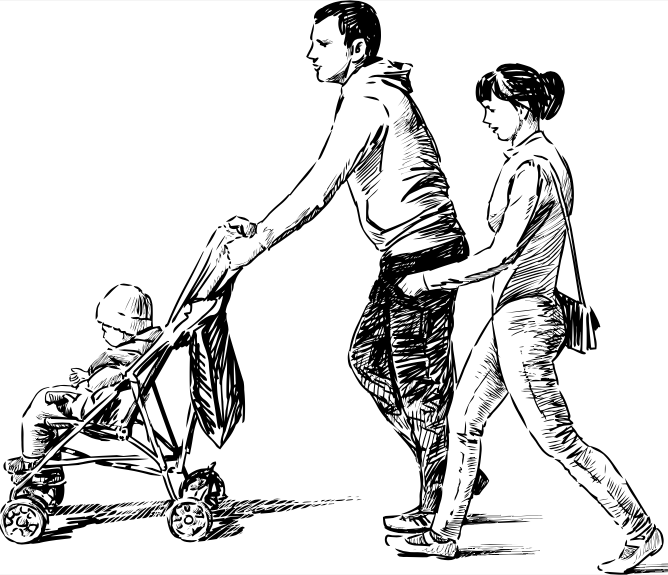Clean Break Orders explained
Why is a clean Break Order needed?
When you get divorced, the decree absolute that legally ends the marriage doesn’t end the couples financial commitments. A clean break order or consent order is needed in order to do this.
Couples who are trying to keep the cost of their divorce to a minimum might question the importance of a clean break order. It’s important to be aware of the potential risks of not taking this step.
There have been a number of high profile cases reported in the media over the years, where someone has successfully made a claim against their ex spouse. One such case resulted in a £2 million pay-out by Nigel Page to his ex-wife, who he divorced 10 years earlier. At the time of their divorce, Mr Page was not particularly wealthy so he didn’t think he needed a clean break order. Several years after his divorce, Mr Page won £56 million on the Lottery and ended up making an out of court settlement with his ex-wife for £2 million.
Multi-millionaire wind farm owner Dale Vince’s wife won her case at the Supreme Court to access a percentage of her ex-husband’s £100 million fortune. This claim was made more than 30 years after their divorce, because no clean break order was put in place.
Whilst these are two extreme examples, they demonstrate the risks of not giving a clean break order. This is one of the reasons why we would always recommend getting specialist legal advice from a divorce solicitor.
How does a clean Break Order work?
Clean break orders are put in place to end all financial commitments between a divorcing couple. This involves dealing with all the assets and financial commitments, including property, savings, maintenance and pensions.
When putting clean break order in place, there will be options as to how different assets are split. For example, when dividing a pension, pension offsetting or pension sharing are common options.
If there’s a requirement for ongoing spousal maintenance, this is also possible to cover in a clean break order. In this situation, the court is likely to implement fixed term spousal payments. This helps to remove the ability for an ex-spouse to have access to financial benefits for life.
Does the length of the marriage affect a clean break order?
The court looks differently at short marriages and long marriages. For the purposes of a clean break order, the court may consider a marriage to be short if the couple didn’t live together before the marriage and if they were together for less than five years. The court would consider a long marriage to be one where the couple lived together for some time before the marriage and they have been married for more than five years.
In a short marriage, the court might decide that each person should leave the marriage with what they brought into it. This can be quite a straightforward option in a clean break order. To do this, each person would need to gather provide financial records outlining their assets when they married. Each person would also need to sign an agreement that they forego any entitlement to their ex-spouse’s pension.
What happens if you cannot achieve a clean break order?
In some instances, it might not be possible to get a clean break order from the court. The court will only implement a clean break order if they believe it to be fair and they will not agree to an order that leaves one person at risk of financial hardship.
Even if you cannot obtain a clean break settlement straight away you should discuss your options with your divorce solicitor and structure any ongoing maintenance payments so they will eventually come to an end.
Getting expert legal advice from a Divorce Solicitor can really help you to be clear about where you stand and to feel more in control of the situation.
Case Studies
Over the years, CKE Attorneys have helped hundreds of individuals and businesses up and down the country. Some of our success stories are below...
-
 Read MorePersonal InjurySlip, Trip or Fall Accidents in Public PlacesIf a member of the public gets injured in a slip, trip or fall accident in a public place, and reasonable steps hadn't been taken to make the area safe, the injured person may be entitled to make a public liability claim.
Read MorePersonal InjurySlip, Trip or Fall Accidents in Public PlacesIf a member of the public gets injured in a slip, trip or fall accident in a public place, and reasonable steps hadn't been taken to make the area safe, the injured person may be entitled to make a public liability claim. -
 Read MorePersonal InjuryWill Personal Injury Compensation Affect My Benefits?Receiving state benefits should not stop an injured person starting a claim for personal injury or medical negligence compensation.
Read MorePersonal InjuryWill Personal Injury Compensation Affect My Benefits?Receiving state benefits should not stop an injured person starting a claim for personal injury or medical negligence compensation. -
 Read MoreEstate Administration & ProbateHow long does probate take without a Will?In England and Wales, the amount of time it takes to go through probate is the same, regardless of whether or not the deceased left a Will. On average it takes around 9-12 months to complete probate, but it can take longer for more complex estates.
Read MoreEstate Administration & ProbateHow long does probate take without a Will?In England and Wales, the amount of time it takes to go through probate is the same, regardless of whether or not the deceased left a Will. On average it takes around 9-12 months to complete probate, but it can take longer for more complex estates.